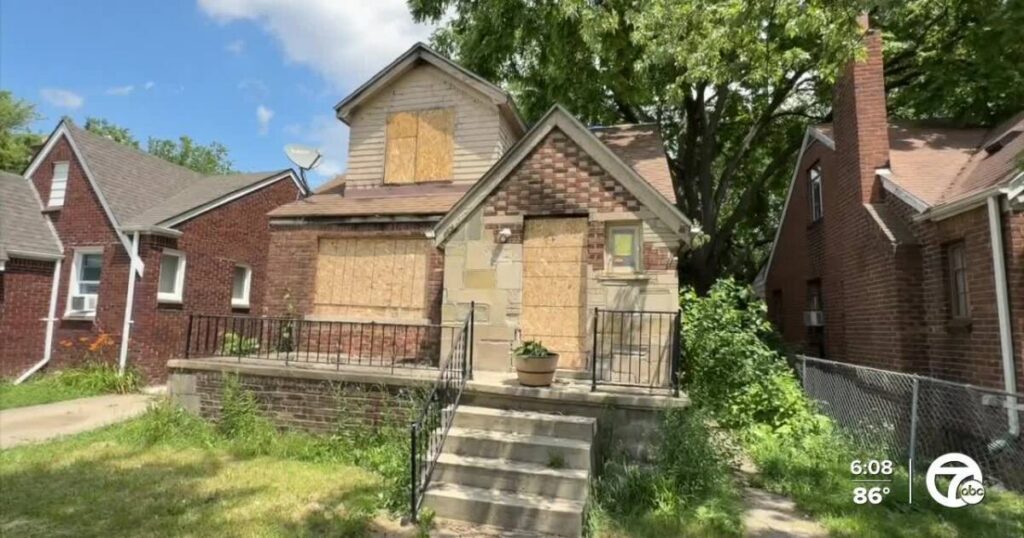Detroit’s Real Estate Gamble: The Controversial Practices of RealT
In July 2023, a Florida-based real estate startup, RealT, introduced a novel investment opportunity to foreign investors—allowing them to purchase fractional ownership in a portfolio of 39 homes on Detroit’s east side for as little as $50. The innovative idea attracted substantial interest, raking in over $2.72 million from investors eager to capitalize on the growing digital asset landscape.
A Troubling Deal
Despite the initial success, the promised transaction has not materialized. Over a year later, the deeds for these homes still list Brewer Park Homes LDHA LP as the legal owner, raising significant questions about RealT’s transparency and operational integrity. As it stands, investors remain uninformed about the fact that the property transfer has not occurred, reflective of a deeper issue within RealT’s business model.
Key Points:
- Investors collectively contributed over $2.72 million.
- The formal deal has yet to close, with no indication from RealT to its investors.
- Legal ownership remains with Brewer Park Homes LDHA LP.
RealT’s Business Model: Is It Sustainable?
Founders Remy and Jean-Marc Jacobson claim RealT operates the largest real estate marketplace of its kind, utilizing the concept of fractional ownership through digital tokens. However, the practice has sparked skepticism among industry experts and investors alike.
Concerns Raised:
- Opacity of Ownership: Investors may not fully understand what they are purchasing.
- Legal Ownership Issues: Without proper deeds, RealT’s claims of ownership remain dubious.
- Misleading Condition Reports: RealT has been accused of inadequately representing the condition and occupancy of its properties.
Accusations of Negligence and Fraud
An investigation by Outlier Media has uncovered serious allegations against RealT, including:
- Selling tokens for properties it does not own.
- Failing to maintain properties, contributing to neighborhood blight.
- Misleading investors about rental income—claiming properties were occupied when they were not.
Investor Testimonials:
A concerned investor warned that the situation exhibits parallels to Ponzi schemes, questioning the very essence of their investment strategy. “If this is true, I’m withdrawing all my investments from RealT,” they stated.
Legal Fallout: Detroit Takes Action
In response to mounting issues, the City of Detroit has filed what is being termed “the largest nuisance abatement lawsuit” in its history against RealT. According to Conrad Mallett, Corporation Counsel, the lawsuit aims to compel RealT to rectify its properties, which have allegedly deteriorated, leading to unsafe living conditions:
- Obligations of Compliance: The city demands compliance certificates for 408 properties mentioned in the lawsuit.
- Potential Liabilities: Fines could be levied for failure to file necessary property transfer affidavits, which are required to be submitted within 45 days of a purchase.
Detroit’s Struggling Tenants: caught in the middle
Many tenants are left in limbo, dealing with substandard living conditions and unclear ownership. Chiona White, a tenant living in a home managed by RealT, recounts her struggles, saying:
- "I’ve spent my own money on repairs and have no formal lease."
- Residents face notices to quit and lack meaningful communication from RealT, leaving them vulnerable.
Unanswered Questions About Property Management
RealT’s claims about its management practices also raise eyebrows. Reviews from tenants and property experts reveal alarming inconsistencies:
- Abandoned Properties: Many properties RealT has tokenized are found to be vacant or significantly overdue on taxes.
- Unverified Ownership: Experts note that numerous properties reported as occupied by RealT are documented as uninhabited.
Additional Investigations:
- Multiple properties are delinquent on taxes.
- Ongoing disputes with local property managers about mismanagement.
Conclusion: A Call for Transparency and Accountability
As scrutiny around RealT intensifies, both city officials and investors demand clarity. The company’s ongoing operations have raised serious ethical and legal concerns that could affect future investment in Detroit’s real estate market.
For those interested in more details on the evolving situation, you can read further on Outlier Media and other reputable news sources. The developments surrounding RealT and its operations in Detroit serve as a broader warning regarding the complexities of digital tokenized real estate investment.
This nuanced account provides a comprehensive overview of the ongoing issues surrounding RealT in Detroit, highlighting the need for accountability in an increasingly complex and opaque real estate market.


